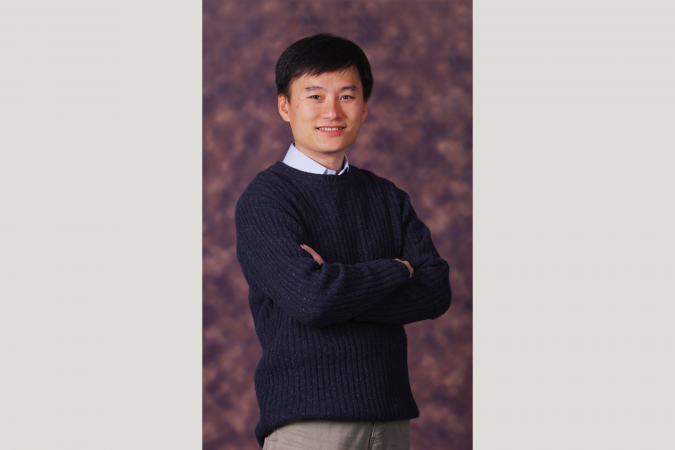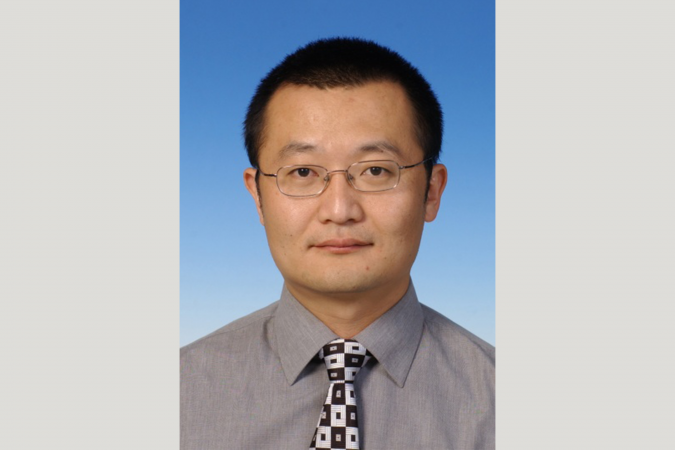HP and HKUST Achieve Breakthrough in Advanced Networking and Information Analytics Research
The Hong Kong University of Science and Technology (HKUST) and HP today announced breakthroughs regarding their collaboration to advance networking and information analytics technology. New innovations include a wireless multi-hop network which provided wider bandwidth coverage range, as well as an information analytics solution with a new probabilistic approach. HKUST and HP have also been working together to explore innovative approaches to promote education in science, technology, engineering and math (STEM) through the HP Catalyst Initiative.
HKUST is the only Hong Kong institution to receive two awards as part of the fourth annual HP Labs Innovation Research Program (IRP) in September 2011. The program has created opportunities for faculty members and students at leading tertiary institutions worldwide to conduct breakthrough research with HP. HKUST's projects are two of 62 selected from 626 proposals from 525 researchers.
"Our collaborations with HP are evidence that our efforts in fostering innovative research and applications are recognized by the global technology industry," said Prof Joseph Hun-wei Lee, Vice-President for Research and Graduate Studies, HKUST. "The projects we are jointly working on are advancing science and technology, as well as improving lives. Our faculty members and students have also benefited from this partnership, which has provided our institution with the latest technology to enhance the teaching and learning experience."
Enhancing Wi-Fi Capability and Information Analytics Technology
The research projects, led by Professors Gary Shueng-Han Chan and Lei Chen from the Department of Computer Science and Engineering, were selected by a global judging panel from HP Labs. Their respective research focus areas are 'Design and Development of a Long-Range High-Capacity Wireless Mesh Network' and 'Web Data Extraction and Retrieval'.
The increase in number of Wi-Fi enabled mobile devices has placed more strain on bandwidth and this affects the online surfing experience. In order to improve Wi-Fi coverage and meet the rising demand for bandwidth, Prof Gary Shueng-Han Chan's team has achieved a research breakthrough by inventing a wireless multi-hop network, commonly known as wireless mesh. This innovation uses directional antennas to increase coverage range and better isolate signal interference. With the combination of intelligent channel assignment and multi-hop routing algorithms, the network's throughput is significantly improved. It also supports node mobility and is fault-tolerant. The result is an advanced network that is reliable, scalable, cost-effective and can be deployed in locations such as cities, enclosed buildings, airports and container terminals.
Another global technological challenge is the storage and analysis of explosion of data from new sources. The team led by Prof Lei Chen has proposed new solutions to build a context-aware web portal with the ability to compare data from various online sources. This system aims to automatically extract, integrate and analyze unstructured web data from diverse sources in order to enhance the search experience for users on a stable platform. It differs from traditional extraction and integration systems that delete erroneous data when inconsistency exists. The team introduces the probabilistic approach that keeps all possible facts during the data integration and helps avoid possible ignorance of real data to achieve maximum accuracy. This will turn information, intuition and ideas into insights to drive better decision making.
"With the goal of inspiring some of the brightest minds from around the world, the HP Labs Innovation Research Program has seen projects that firmly tie into areas that reflect our strategic focus, such as cloud and information analytics," said Dr Min Wang, director, HP Labs China. "HP Labs are delighted to be working with HKUST to advance research that helps overcome current technology challenges, while investing in the next generation of scientists and technology experts."
New Teaching Lab Measures Learning for STEM education
Through the HP Catalyst Initiative, the team led by Prof Lei Chen and Prof Mounir Hamdi in HKUST provides insight on how STEM competencies can be assessed and measured by technology. The findings will contribute to the creation of future innovations that better meet students' needs.
HKUST was selected in 2010 as one of the 35 educational institutes and the only one in Hong Kong to receive a grant of US$150,000. With the grant from HP, HKUST has set up a brand new teaching lab equipped with high-end computers for students from the Department of Computer Science and Engineering. It helps teachers get real-time feedback to further improve course designs and teaching progress to better steer teaching and learning directions and achieve the best learning outcome.
The University serves as one of the six members of the Measuring Learning Consortium led by Carnegie Mellon University. The goal is to develop technology-enabled assessments to measure vital STEM competencies that are difficult to evaluate through conventional methods.


